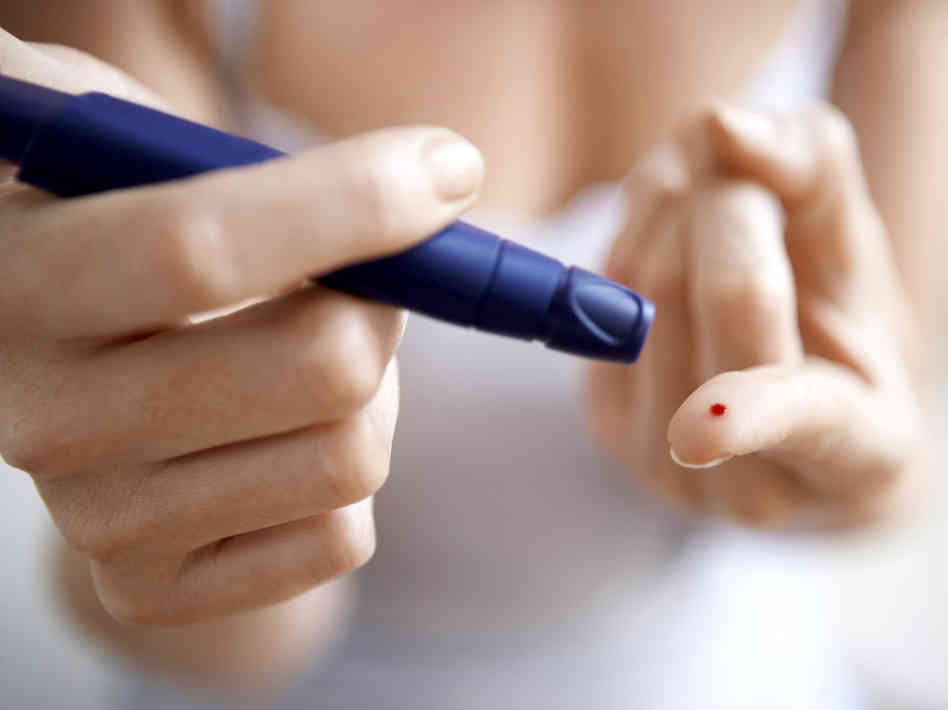
Most often we have heard about insulin only in the context of diabetes. That’s because diabetes is a condition characterized by insulin deficiency. Insulin is a hormone secreted by the beta cells of Pancreas in response to glucose released in the blood after the carbohydrate breakdown in the body. Insulin’s role is to pick up the glucose from blood and take it to the cells to feed them. Since there’s lack of insulin in a diabetic situation, the blood glucose isn’t drawn from blood to cells and therefore its levels remain high.
Insulin is barely talked about in the weight loss/weight gain segment despite it playing a huge role in it.
To understand the link between insulin and weight, we first need to understand the relationship between carbs, blood sugar and insulin. It is this connection that has massive bearing on weight loss.
There are 2 kinds of carbs- Simple and Complex. Simple carbs are the ones which are quickly broken down to glucose and result in rapid spike in blood sugar, whereas complex carbs are the slow glucose releasing carbs (do not cause blood sugar spike unlike the simple ones)
Let’s check out the mechanism of insulin and weight gain:
- Simple carbs cause a prompt response of insulin which takes care of the sugar spike and restores the blood sugar levels. It carries the glucose to the cells where it is used for energy (fuel), and the extra is stored as glycogen in the liver (storage form of glucose). The excess glucose, over and above, gets converted into FAT!
- When we eat a lot of simple carbs at a time, our pancreas tries its best to keep up with the massive surges in blood glucose by producing large amounts of insulin, resulting in a quick drop in blood glucose levels (i.e. hypoglycemia). This is then followed by a feeling of dizziness and weakness. It doesn’t end here, it further leads to hunger pangs and crazy cravings for sweets/refined carbs in an attempt to normalize the blood glucose level. This eventually leads to a vicious circle of eating foods high in sugar, which ultimately end up getting converted into fat.
- If the above cycle continues for a prolonged period, and our pancreas repeatedly and constantly produces insulin in huge amounts, there will be a point when our cells start getting immune or insensitive to insulin, this state is called Insulin Resistance. The cells no longer accept glucose that insulin carries along with it. Hence, the glucose levels in the blood stay up, ultimately leading to fat storage. This fat storage mainly occurs because insulin also activates a fat storage enzyme called lipoprotein lipase.
These are exactly the reasons why Insulin is tagged as a “Lipogenic Hormone”- One that results in fat gain!
If you are keen on preventing yourself from the not-so-appealing weight/fat gain, then it’s important for you to play wisely with your insulin by doing the right thing when it comes to carb consumption.
How can we assure this? All that we have to take care is that we keep the refined and simple carb intake on the lower side. This category includes bread and bakery stuff, pizzas, burgers, sweets and desserts, polished rice and noodles, etc. Believe me, when you are busy enjoying these foods, your body is getting ready to store it as fat.
Focus more on complex carbs which include the whole grain based stuff like oatmeal, whole wheat bread, whole wheat pasta, brown/red rice, fibrous green vegetables, starchy vegetables such as potatoes, beans, peas and lentils, etc.
As the complex carbs are slow moving, they lead to slow secretion of insulin which does its job at its own sweet pace, hence there’s no issue of fat storage in this case. This allows you to feel fuller for a longer period of time, typically for up to 3 hours and thereby preventing hunger pangs and unnecessary binging.
The overall connection is a bit tricky but, once we decode this puzzle, we are sorted!




Leave a Reply